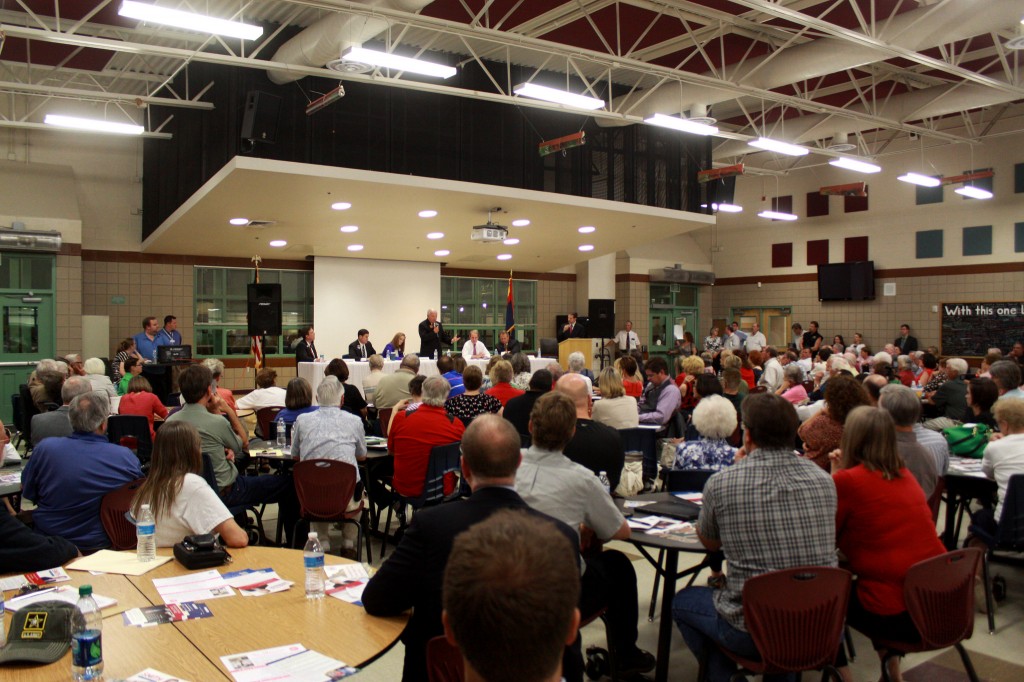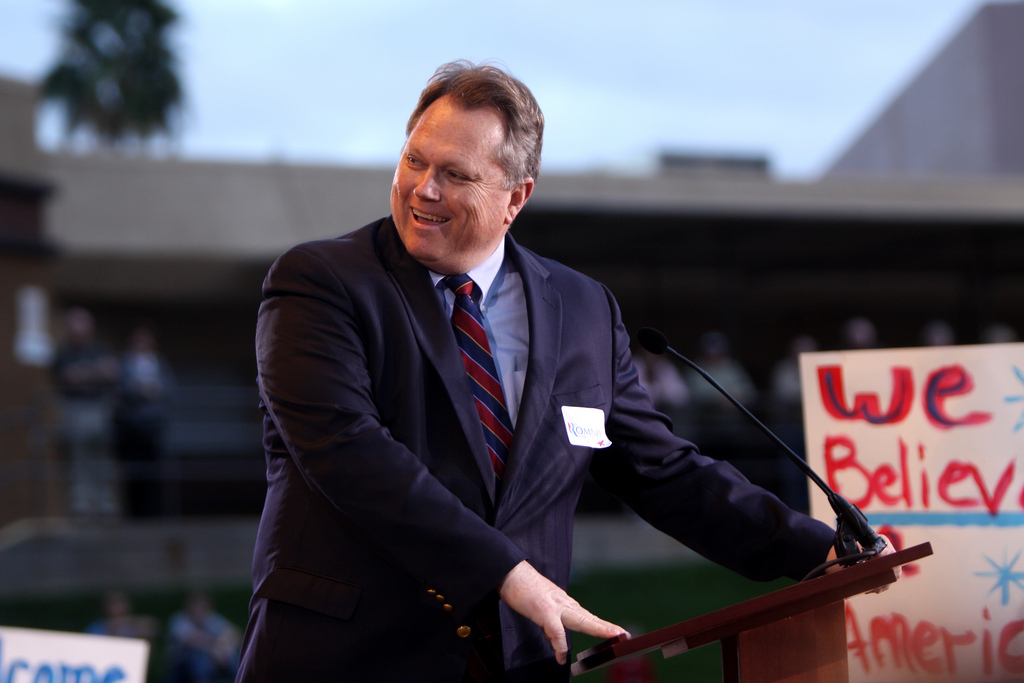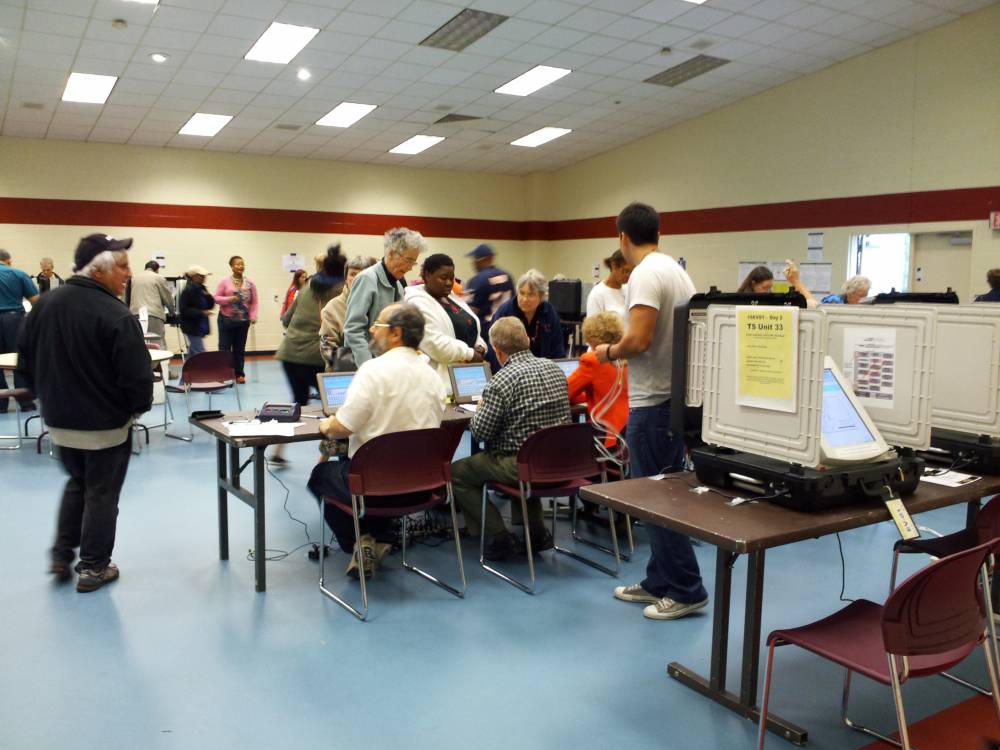When Kevin Hill, a social studies teacher who spent his entire career working in Wake County, North Carolina, first ran for the county’s Board or Education in 2007, his campaign raised about $5,000. Just four years later, Hill’s campaign raised more than $70,000. One of his opponents raised more than $90,000.
Wake County is home to North Carolina’s largest school system. Boasting 171 schools and more than 155,000 students, it is the 16th largest school system in the nation. The county had long employed a renowned policy that integratedstudents based on income, but newly elected school board members voted with a 5-4 new conservative majority (the election is technically nonpartisan) to change that policy in favor of “neighborhood schools.” This shift sparked national interest in the race that elected the majority, since the candidates who won in 2009 had all strongly opposed the county’s previous busing and integration policy and received support from special interest groups. The election was record-breaking at the time, with the candidates raising over $155,000 and party and PAC spending totaling upwards of $340,000.
But those are paltry numbers compared to what followed. The 2011 Wake County school board election—in particular, the race for the fifth seat needed to constitute a majority—saw dynamics typically only seen at the statewide level. Wake County became the battleground for school integration issues, and the cost of the election reflected it. Eleven candidates raised more than $238,000, and in the runoff between the Democratic-aligned incumbent Kevin Hill and challenger Heather Losurdo, over $500,000 was spent attacking the candidates. Hill won the election by just 1,000 votes. “It really blew my mind,” Hill told the HPR.“I don’t know why anybody out of the state of North Carolina would want to put money into a local nonpartisan school board race.”
Undisclosed outside money distorting local politics is not isolated to Wake County. Across the nation, and especially in the last three or four election cycles, independent expenditures and “dark” money from non-profits with undisclosed donors have become increasingly prevalent in local and municipal elections.
The (National) Problem with Local Elections
The effect of outside money in state politics is staggering. The Institute for Southern Studies conducted an analysis showing that outside groups, or independent organizations that are not permitted to coordinate with candidates, spent more than $10 million dollars in North Carolina state-level races in 2014. This increasing interest in smaller elections has detrimental, compounding effects when donors exert influence at the local level in mayoral, school board, and other municipal elections.
Scott Smith, the former mayor of Mesa, Arizona and a fellow at Harvard’s Institute of Politics, corroborates Kevin Hill’s experience. Smith experienced dark money firsthand as a candidate in the 2014 Arizona Republican gubernatorial primary. Outside groups contributed about $3.2 million into the race, in which former state treasurer Doug Ducey emerged victorious in the primary and the general election. Smith told the HPR that he thinks the trend of spending money in smaller elections coincided with the Supreme Court’s decision in Citizens United v. FEC, which “broke the dam.”
He believes the source of increased spending on local elections is a product of political contributors figuring out how to spend their money most effectively and of candidates for office realizing how to best spend their time. “Rather than spend hours upon hours talking to people, if [a candidate] can get two people or two groups to invest, they can easily cut a $50,000, $100,000, $500,000 check,” he explained, pointing out that the dynamic of high incentives to spend on local races, coupled with high incentives for politicians to accept large donations and low stakes for campaign law violations (usually a fine that can be paid with campaign contributions), fosters an environment that blatantly encourages dark money.
Dark money also became a factor in the Mesa Public Schools Governing Board, with school board candidates’ positions on Common Core emerging as salient reasons for donors to contribute. From Smith’s perspective, big independent groups supported those candidates that came out strongly against Common Core, regardless of the nuance of the candidates’ beliefs. This turned the nonpartisan school board election into a hyperpolarized single-issue campaign, and it had a substantial impact: anti-Common Core groups felt the stakes were high in that election, and their involvement gave anti-Common Core candidates the advantage on Election Day.
Kevin Hill and Scott Smith’s experiences are just two examples of the damaging effects of outside groups on elections. But this anecdotal evidence illuminates another problem: the dearth of data that can quantify the full extent of outside spending on local races.
By the (Lack of) Numbers
In writing this article, the HPR contacted a number of good government research groups: Democracy North Carolina, Common Cause North Carolina, the Institute for Southern Studies, and the National Institute on Money in State Politics. Representatives from these organizations generally agreed that independent expenditures and outside groups might be increasingly involved in local and municipal elections, but they lamented the lack of resources to gather data on the subject. Calder Burgam of the National Institute on Money in State Politics pointed out that the decentralized and irregular system of campaign finance reporting and disclosure at the municipal level would make tracking spending at that level exceptionally difficult. Disclosure protocol is particularly lacking; apparently, some municipal boards of elections do not require any disclosure, and some municipalities lack even a designated board of election.
However, the impact of the problem is even more concerning than the difficulties in measurement. Scott Smith characterizes the behavior of outside groups as mafia-like “in the sense that the penalties for violating the dark money rules are viewed as a cost of doing business.” Few public officials believe they would be thrown out of office for violating any sort of campaign finance laws, and they are undeterred by the penalty of a fine. Smith argued that mega-donors and special interest groups will always get involved when an election has high stakes, and even a nonpartisan local race can seem high-stakes depending on the issue.
Hill recounted one mailer that went out before Election Day, in which the 30-year registered independent was depicted wearing a tie-dye shirt while driving a bus surrounded with peace signs—a condemnation of his position on the county busing policy, despite his willingness to compromise on some parts of the new assignment plan. “I really got a hoot out of that one,” he recalled.
But he was also deeply unhappy with the things said about his opponents. “I didn’t see [the ads] before they went out … so I didn’t really have a chance to approve or disapprove,” he said. “People can sort of lose their scruples and become downright nasty. That’s part of what can happen when that kind of money comes in.” Hill generally felt that the involvement of outside groups was a huge detriment to the election.
The increasing cost of elections and uncertainty over the role of outside groups has also deterred local community members from running for office. Leadership Education and Development for North Carolina (LEAD NC) executive director Tammy Brunner helps encourage and train leaders in communities across the state for potential careers in elected office. She told the HPR, “Potential candidates are often deterred by the amount of money it takes to be competitive. They have a hard time seeing how they can campaign, raise money, and keep their current jobs.”
This issue is also on the radar of national organizations. Stephanie Schriock, the president of the pro-choice PAC EMILY’s List, acknowledges that public discussion often solely covers the amount of money in presidential and Senate races, but that local elections face this problem, too. She specifically pointed out her concerns about the Koch brothers and the conservative wing of the Republican Party. “[These groups] are spending more and more money not in coordination with candidates to buy seats in local elections,” she said. “What we’re doing about this is the bigger question.”
Light at the End of the Dark Money Tunnel
Unlike a constitutional amendment or massive overhaul of legislation necessary to achieve federal campaign finance reform, there are feasible solutions for expenditures in local elections that can be adopted relatively quickly. The National Institute on Money in State Politics has guidelines on best practices for local governments to adopt to achieve strong disclosure, and the organization is increasingly collecting data on money spent in certain municipal elections. Groups like Democracy North Carolina and Common Cause are observing this changing trend and are increasingly aware of the need for centralized and traceable data.
However, more research and transparency is necessary in order to document the full scope and impact of exploding dark money expenditures in local politics. Institute for Southern Studies research associate Alex Kotch thinks that many mega-donors and secret money institutions wouldn’t necessarily be donating if their names were publicly tied to their donations. Stephanie Schriock of EMILY’s List also agrees that more public disclosure can serve as a counter for outsiders buying up local elections.
Kevin Hill is now entering the end of his two terms on the Wake County School Board. Reflecting on his time in office, he doesn’t regret his decision to run in 2007 or 2011, but he does think the campaign finance system has to be changed. “Having taught politics in high school, it was kind of embarrassing to me to see how politics really takes place,” he admitted. “I do think campaign finance reform is a must. I just wish they would do something at least to be able to trace the money, to be able put a name to it.”
Image Credit: Gage Skidmore/Flickr; Gage Skidmore/Flickr; Wikimedia


